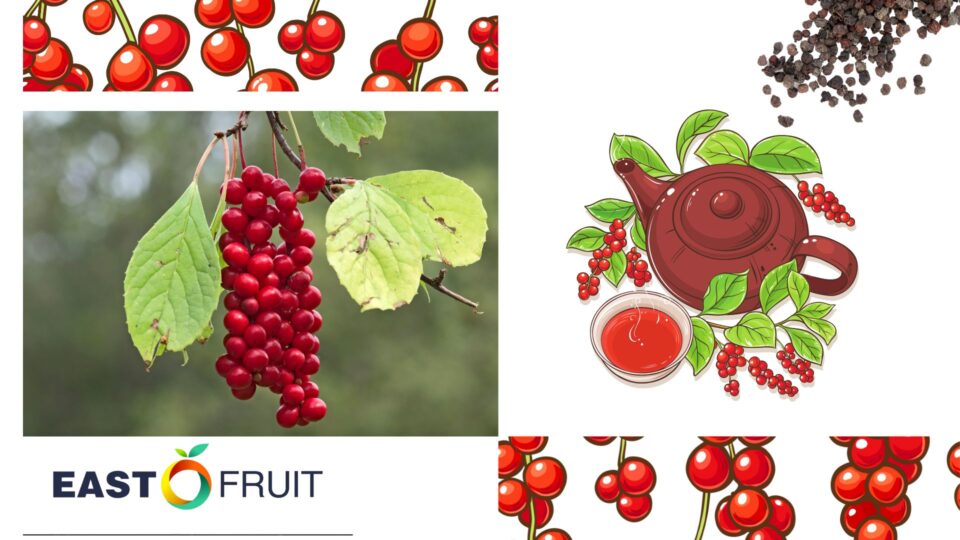Schisandra berries, or Chinese magnolia vine, are gradually gaining recognition among health enthusiasts and phytopharmacology experts due to their unique healing properties. The trend towards a healthy lifestyle is promoting Schisandra (Schisandra chinensis), known in Asia as Wu Wei Zi, writes EastFruit.
This ancient ingredient of traditional Chinese medicine boasts a range of beneficial effects, making it a contender for the title of superfood.
What is Schisandra?
Schisandra is the fruit of the vine Schisandra chinensis, which naturally grows in the northeastern regions of China, Japan, Korea, and Eastern European countries. In Asia and Europe, it is also cultivated in gardens and urban parks, where it is used for decorative and other purposes.
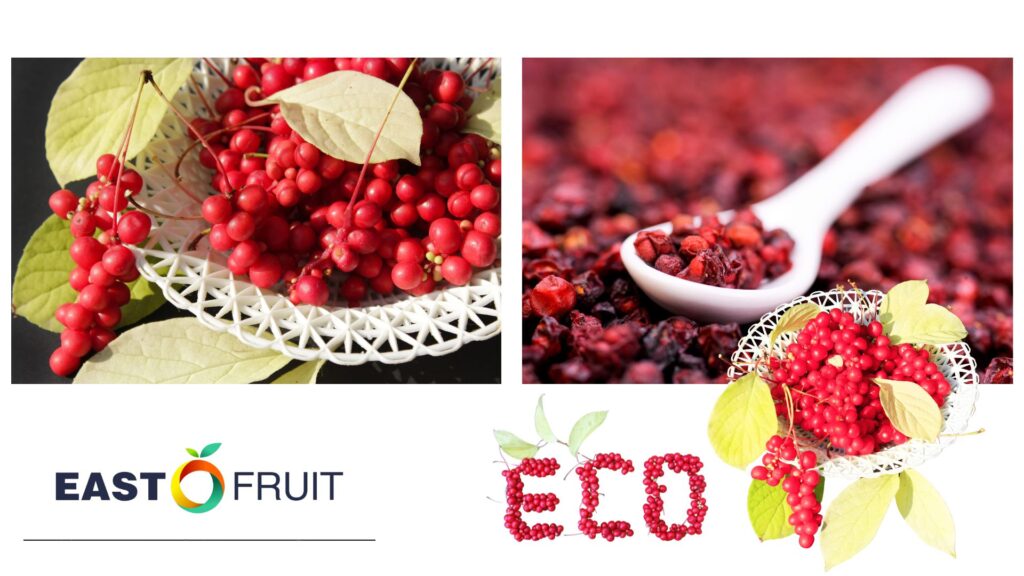 The berries of this vine, resembling clusters of grapes, are a rich red color and have a vibrant aroma. In traditional Chinese medicine, these berries are known for their adaptogenic properties, meaning they help the body adapt to stress and increased demands.
The berries of this vine, resembling clusters of grapes, are a rich red color and have a vibrant aroma. In traditional Chinese medicine, these berries are known for their adaptogenic properties, meaning they help the body adapt to stress and increased demands.
Schisandra is a dioecious climber that prefers warm climates and fertile soils. The plant is frost-resistant but does not tolerate drought. Under favorable conditions, it can reach a height of 15 meters, winding around the trunks of trees. Schisandra leaves are elliptical or inverted ovate with pronounced venation and a sharp tip. When torn, they emit a pleasant lemon aroma. The plant’s flowers hang on long pedicels and are white or whitish-pink. The fruits ripen in late August to early September and are juicy, red berries with a lemon aroma, gathered in clusters of 10-40 pieces.
Medicinal Use of Schisandra in Traditional Chinese Medicine
In traditional Chinese medicine, Schisandra holds a special place due to its unique properties, which beneficially affect five organs: the spleen, liver, heart, lungs, and kidneys. Depending on their flavors—sour, sweet, bitter, pungent, and salty—Schisandra berries balance different health aspects, helping to restore harmony between the body, mind, and spirit.
In China, the plant is used almost entirely: from the bark and leaves to the fruits. Schisandra is known for its “five flavors”: sour, sweet, salty, bitter, and astringent. This makes it unique not only in culinary applications but also in medicine. The fruits and seeds of the plant are used to make various medications and tinctures.
The beneficial and medicinal properties of the vine are due to its unique composition. The substances contained in the berries act as a tonic and antioxidant, also helping to strengthen the body’s defenses.
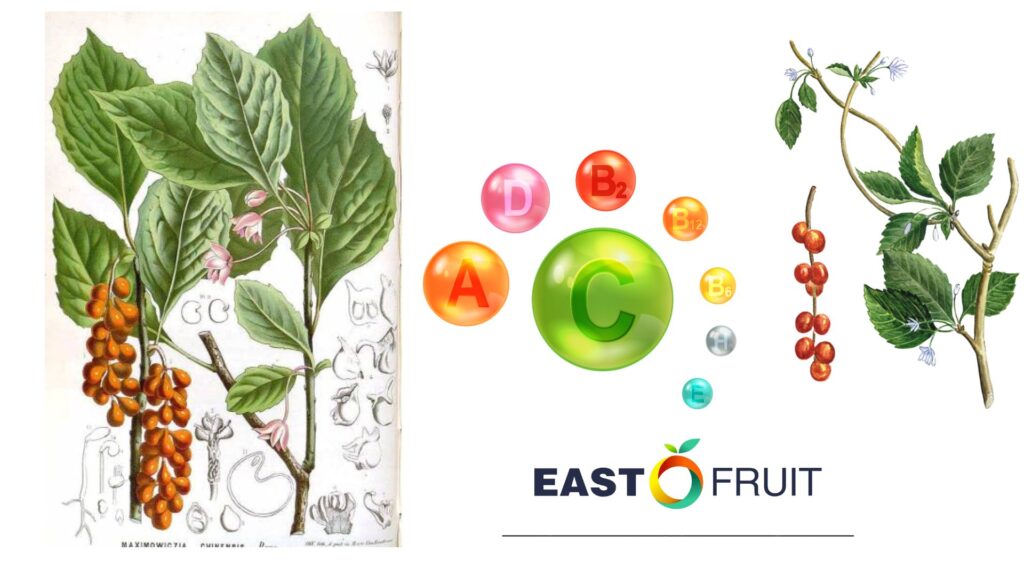 Schisandra berries are high in vitamins C and E. The first is an antioxidant that helps with immunity and eases the course of respiratory infections. The second is also an antioxidant, a cardioprotector, protects cellular membranes from damage, and regulates oxygen consumption by cells. Schisandra contains minerals such as calcium, potassium, zinc, iron, magnesium, iodine, and others. Their content is not very high, but this does not affect the main properties of the berry. The fruits are notable for containing up to 33% oils in their seeds, mainly composed of oleic and linoleic fatty acids. Schisandra also has a lot of essential oils, mainly concentrated in the bark and stem, which are used in perfumery. The rest of the plant’s beneficial properties have found applications in medicine and among health enthusiasts.
Schisandra berries are high in vitamins C and E. The first is an antioxidant that helps with immunity and eases the course of respiratory infections. The second is also an antioxidant, a cardioprotector, protects cellular membranes from damage, and regulates oxygen consumption by cells. Schisandra contains minerals such as calcium, potassium, zinc, iron, magnesium, iodine, and others. Their content is not very high, but this does not affect the main properties of the berry. The fruits are notable for containing up to 33% oils in their seeds, mainly composed of oleic and linoleic fatty acids. Schisandra also has a lot of essential oils, mainly concentrated in the bark and stem, which are used in perfumery. The rest of the plant’s beneficial properties have found applications in medicine and among health enthusiasts.
 The Benefits of Schisandra for the Brain
The Benefits of Schisandra for the Brain
Modern research confirms that schisandra can support neurogenerative processes and improve cognitive functions. This is related to the polyphenols in the berries, known as lignans, which help protect nerve cells and can improve memory and learning.
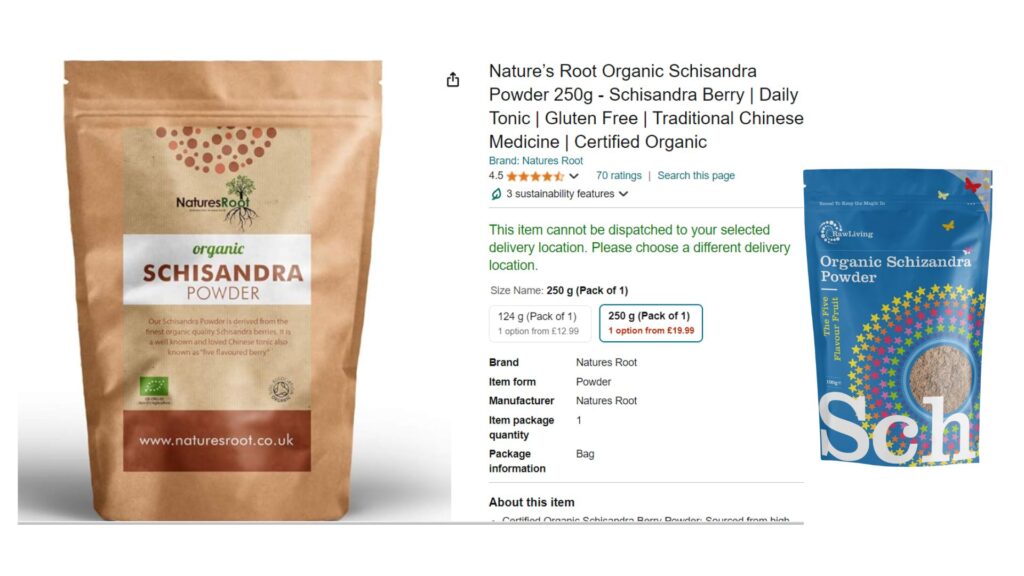 Schisandra and Healthy Sleep
Schisandra and Healthy Sleep
Traditionally, schisandra is used to calm the heart’s Qi, which helps improve sleep quality, deal with insomnia and anxiety. This is especially important in conditions of increased stress and mental strain.
 Kidney Support
Kidney Support
In Chinese medicine, kidneys are considered the “root of life,” and schisandra has a powerful tonic effect on this vital organ. It helps regulate metabolism, enhances the body’s energy potential, and supports hair and bone health.
Cough Relief
Schisandra is also known for its properties to combat chronic cough and hoarseness by binding and retaining moisture in the lungs, thus soothing inflammation and irritation.
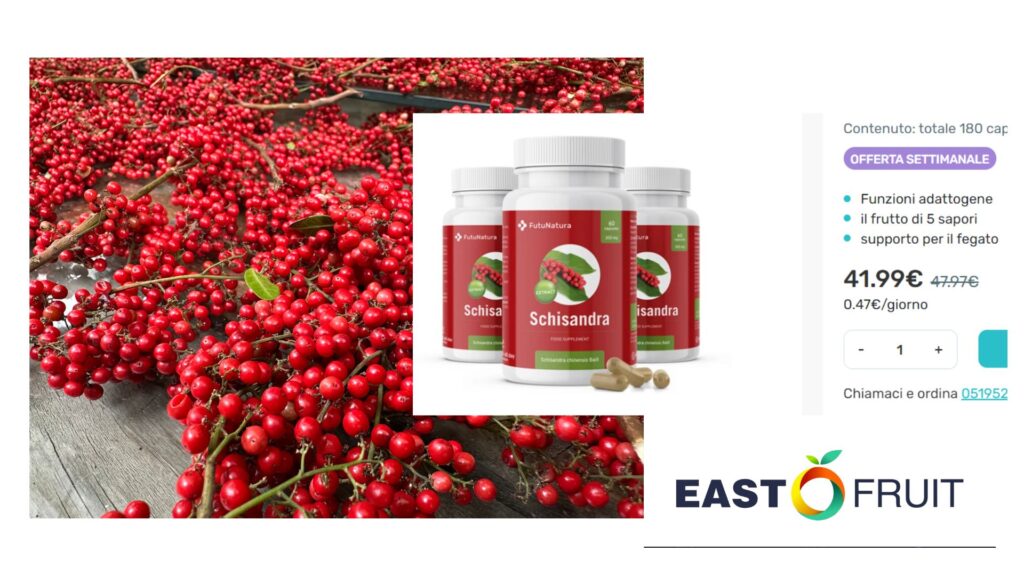 Important Precautions
Important Precautions
Although schisandra is considered safe, it is important to adhere to the recommended doses. It is advised to consult a doctor before incorporating this superfood into your diet, especially if you are taking other medications.
How is Schisandra Used?
Traditionally, schisandra berries are dried in the sun or steam-processed to preserve their beneficial properties. They can be consumed dried. Due to the interesting spicy taste, the berries are sometimes added to sweets, jams, and chocolate. You can also make jam or marmalade, a fruit drink, or syrup. However, due to the high sugar content, such a treat is unlikely to be dietary.
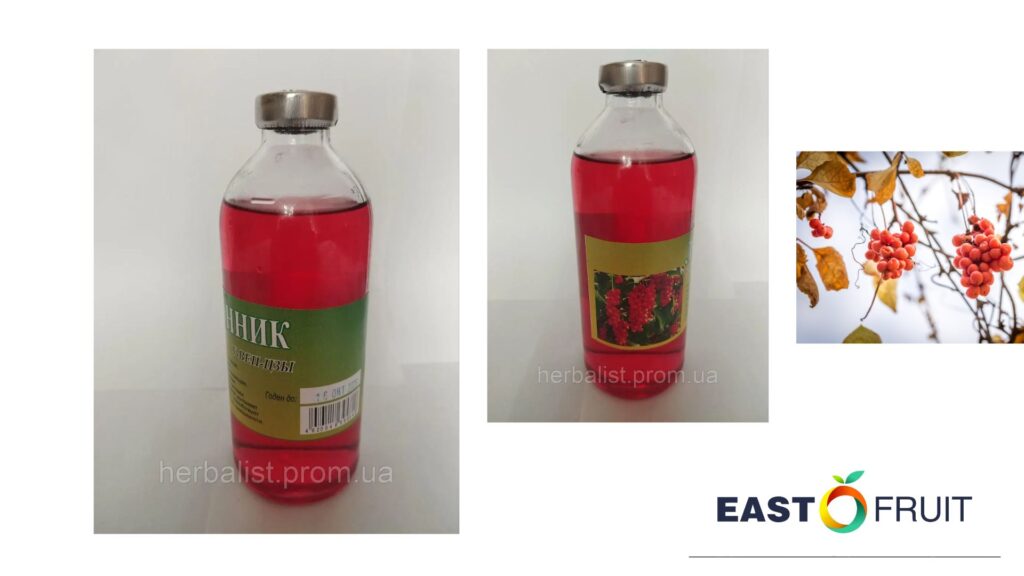 “In phytotherapy and medicine, you can find a variety of products made from schisandra berries. There are many offers on online platforms in the EU, Eastern European countries, and the USA—ranging from dietary supplements made from schisandra, tinctures, powders, to dried berries. In developed countries, schisandra is perceived as a superfood, and therefore, products made from it are sold at premium prices. For example, the cost of organic schisandra berry powder in the US market is more than $70 for 100 grams,” notes Kateryna Zvierieva, Development Director of the Ukrainian Horticulture Association.
“In phytotherapy and medicine, you can find a variety of products made from schisandra berries. There are many offers on online platforms in the EU, Eastern European countries, and the USA—ranging from dietary supplements made from schisandra, tinctures, powders, to dried berries. In developed countries, schisandra is perceived as a superfood, and therefore, products made from it are sold at premium prices. For example, the cost of organic schisandra berry powder in the US market is more than $70 for 100 grams,” notes Kateryna Zvierieva, Development Director of the Ukrainian Horticulture Association.
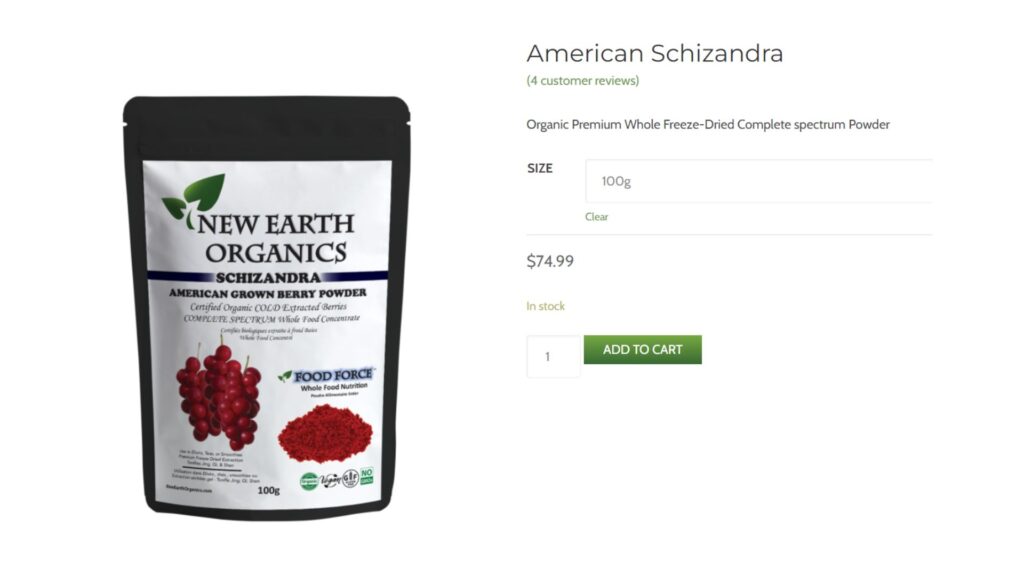 Experts create creams with concentrated schisandra extract that help address certain skin issues. The plant has a toning effect and helps tighten the skin. The data obtained indicate its effective antibacterial and antiviral activity. That’s why this plant has been known and used in Asia for thousands of years.
Experts create creams with concentrated schisandra extract that help address certain skin issues. The plant has a toning effect and helps tighten the skin. The data obtained indicate its effective antibacterial and antiviral activity. That’s why this plant has been known and used in Asia for thousands of years.




